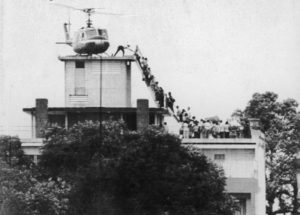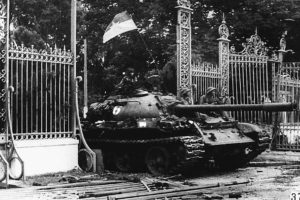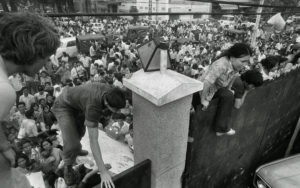
We Boomers have a wealth of pleasant memories from growing up in the 50’s, 60’s, and 70’s. Those are memories that we wouldn’t trade for a million dollars. But, like all generations, we have our share of bad memories as well.
One of the most pervasive unpleasant memories that touched each and every one of us was the war in Vietnam. In this blog’s early days, I wrote a column about that subject. War seemed normal to Boomer kids, sadly, there is a whole new generation to whom it feels that way as well.
What made the Vietnam war so hard to deal with was that all of the deaths, the maimings, the psychological scarrings that happened to our nation’s youth were, it appears, all for nothing.
By 1972, the country was sick of Vietnam. The protesters had found many allies in the “establishment,” it seemed that there wasn’t a soul who wanted to spend any more lives to try to make a nation located on the far side of the world a place safe for democracy. The 1972 Presidential election featured a lot of talk by all candidates concerned about ending the mess once and for all.
Nixon really didn’t face much competition, though, and after his re-election, he set about getting America out of SE Asia.

On January 27, 1973, the governments of the US, North Vietnam, and South Vietnam all signed a treaty effectively ending the war. It was a noble document, to be sure, calling for the US forces to withdraw, all POW’s to be returned, and an international military force protecting and enforcing the truce.
It was also a death sentence for South Vietnam.
Nixon called the withdrawal of troops “peace with honor.” That feel-good phrase belied the actuality, that as Americans withdrew, the Viet Cong rapidly moved in and took over.
The average American, eager to never hear the word “Vietnam” again, simply didn’t care. What was important was getting out of there ASAP.
What further sealed South Vietnam’s fate was the fact that the Watergate scandal had broken, and the news media were relentlessly covering the juicy story, to the detriment of the seemingly endless unrest in Indo-China.
Once Nixon’s resignation was a done deal, Gerald Ford continued to oversee the withdrawal, even accelerating it, despite the fact that South Vietnam was obviously being systematically devoured by the North as American troops departed.
Nobody seemed to care, except the increasingly desperate South Vietnamese, seen as traitors by the Communist North.
By spring, 1975, the withdrawal took on the appearance of a hasty retreat. North Vietnamese forces were pouring over the land like hungry locusts, and Saigon was the last “free” place left in the country. On April 30, Ford ordered Ambassador Graham Martin and all remaining American personnel to leave at once.

There were about 1500 hundred South Vietnamese loyalists at the American embassy, all of whom had been guaranteed protection, and they were looking more and more like they were to be tossed to the wolves.
The marines guarding the embassy perimeter were called inside the building, and an angry crowd outside the walls began to tear down the gates.
Refugees had been in the process of being evacuated, but as things got uglier, the directive was changed to transport American citizens only. Finally, at 0500 local time on April 30, the last helicopter took off from the embassy. Approximately 400 loyalists were left on the grounds, an angry crowd in the process of swarming over them.
Thus ended “peace with honor.”
The whole Vietnam mess put such a bad taste in the mouths of the American public and their elected officials that it looked like the country might never go to war again. Indeed, some 35 years later, SE Asia, despite continuing unrest, is far off the list of potential areas in which the US might get involved.
No, problems exist elsewhere, and once again, a war has drug on for many years, one that the public has grown very weary of. The helpless feelings of seeing body bags and knowing that the enemy is still very much in power is getting to have a sense of deja vu about it.
And while that feeling of having seen something before can often be pleasant, this time, it’s very much the opposite.